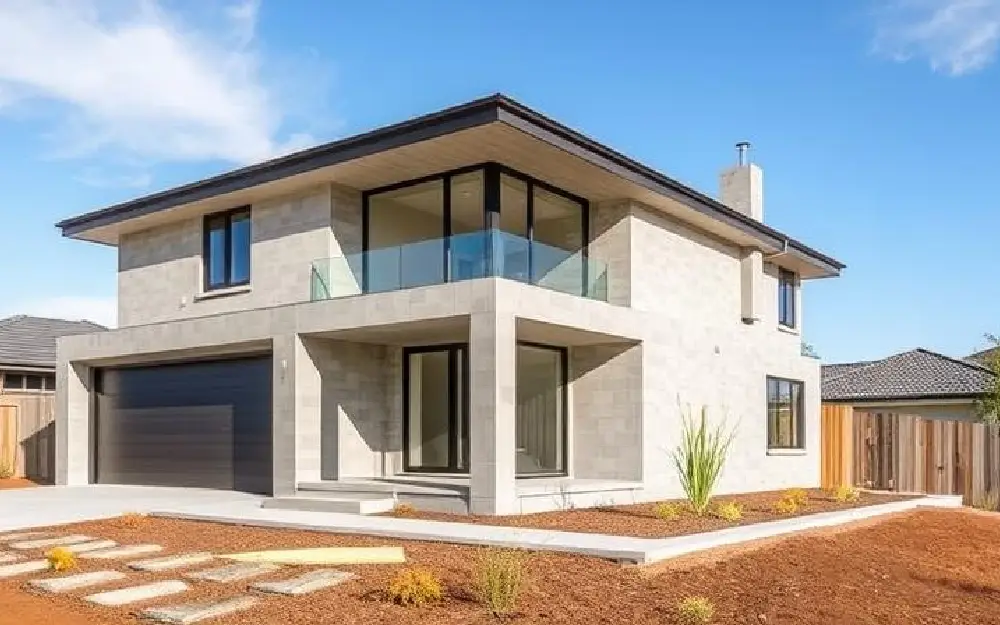
The Role of High-Performance Concrete in Home Construction
Concrete is the backbone of most modern buildings, providing stability, strength, and durability. However, not all concrete is created equal. High-performance concrete (HPC) takes concrete to the next level, offering superior strength, durability, and other qualities that make it an ideal material for home construction. In this blog, we’ll explore the role of high-performance concrete in home construction, its benefits, and why it’s becoming increasingly popular in building homes.
What is High-Performance Concrete (HPC)?
High-performance concrete is a type of concrete that is engineered to have enhanced properties such as high strength, durability, workability, and resistance to environmental factors. It is made with specific ingredients and advanced mixing techniques to achieve superior performance. HPC is used in projects where the structural and long-term performance requirements exceed the capabilities of conventional concrete.
Key Benefits of High-Performance Concrete in Home Construction
- Increased Durability
One of the primary benefits of high-performance concrete is its enhanced durability. HPC is designed to withstand harsh environmental conditions, including extreme weather, moisture, and chemicals. This makes it ideal for homes located in areas with high humidity, salty air (coastal areas), or regions prone to freezing and thawing cycles. Using HPC in home construction ensures that the structure will have a long life and require less maintenance over time. - Improved Strength
High-performance concrete is engineered to have superior strength compared to regular concrete. It can withstand higher loads and pressures, making it ideal for homes with heavy structural demands, such as multi-story buildings or homes with large open spaces. The higher strength also means less material is needed to achieve the same level of structural support, leading to more efficient designs. - Better Workability
HPC is easier to work with during construction, especially in complex forms and intricate designs. It has better flowability, meaning it can be poured more easily into molds or frameworks without compromising strength. This allows builders to create more complex and detailed architectural designs without worrying about the material being too stiff or hard to manage. - Enhanced Resistance to Cracking
Cracking is a common issue in concrete structures, often caused by shrinkage, temperature changes, or environmental conditions. High-performance concrete is formulated to minimize these issues by incorporating additives and using a specific mix of aggregates. This reduces the chances of cracking, ensuring that your home maintains its structural integrity for a longer period. - Sustainability
High-performance concrete can contribute to the sustainability of a home. It often uses recycled materials, such as fly ash or slag, as partial replacements for cement, which helps reduce the environmental impact of concrete production. Additionally, because HPC is more durable, it reduces the need for repairs and replacements, which further contributes to sustainability by decreasing the use of additional resources over time. - Energy Efficiency
Homes built with high-performance concrete can also benefit from better energy efficiency. The material has excellent thermal mass, meaning it can absorb, store, and release heat effectively. This helps maintain a comfortable indoor temperature, reducing the need for excessive heating or cooling. As a result, HPC homes are more energy-efficient and can lead to lower energy bills for homeowners.
Applications of High-Performance Concrete in Home Construction
- Foundations
HPC is often used for foundation work, particularly in homes with large or heavy structures. Its strength and durability ensure that the foundation will support the home for years to come, even under challenging conditions. - Walls and Floors
HPC can be used for walls and flooring in homes, especially in areas requiring high resistance to moisture or extreme temperatures. It’s especially useful in basements, garages, and foundations where durability is essential. - Structural Support
For multi-story homes or homes with large spans, high-performance concrete provides the necessary support to keep the structure safe and stable. - Architectural Features
HPC can be used in decorative elements, such as exposed concrete surfaces, columns, and custom finishes. Its ability to hold intricate forms and shapes makes it ideal for creating unique architectural details.
Challenges and Considerations
- Higher Initial Costs
One of the main drawbacks of using high-performance concrete is its higher initial cost compared to standard concrete. The materials, additives, and mixing processes required to create HPC can make it more expensive. However, the long-term benefits in terms of durability and reduced maintenance costs often outweigh the initial investment. - Specialized Knowledge and Equipment
HPC requires specialized knowledge and equipment for mixing, pouring, and curing. Builders need to have experience working with HPC to ensure that the material is used correctly. This can make construction more complex and require more skilled labor, which may increase labor costs. - Longer Curing Times
Some high-performance concretes have longer curing times, which can delay the construction process. Builders need to account for this when planning the timeline of a project. However, the increased strength and durability gained from the longer curing process typically justify the wait.
Conclusion
High-performance concrete plays an essential role in modern home construction. Its increased strength, durability, workability, and energy efficiency make it an ideal material for homeowners looking for a long-lasting and low-maintenance structure. While the initial cost may be higher, the long-term benefits—such as reduced maintenance, enhanced energy efficiency, and better resistance to environmental conditions—make it a wise investment for homeowners looking to build a durable, sustainable, and comfortable home.
If you’re considering building a new home or renovating an existing one, high-performance concrete might be the material that ensures your home stands the test of time.


